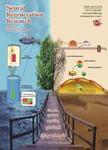Geniposide prevents rotenone-induced apoptosis in primary cultured neurons
Geniposide prevents rotenone-induced apoptosis in primary cultured neurons作者机构:Key Laboratory of Cellular Physiology Shanxi Medical University Second Hospital Shanxi Medical University
出 版 物:《Neural Regeneration Research》 (中国神经再生研究(英文版))
年 卷 期:2015年第10卷第10期
页 面:1617-1621页
核心收录:
学科分类:0710[理学-生物学] 1008[医学-中药学(可授医学、理学学位)] 1006[医学-中西医结合] 1002[医学-临床医学] 1001[医学-基础医学(可授医学、理学学位)] 100602[医学-中西医结合临床] 10[医学]
基 金:supported by grants from the Shanxi Science and Technology Department in China,No.2011081060 Shanxi Scholarship Council of China,No.2011-44
主 题:nerve regeneration geniposide rotenone cell apoptosis Alzheimer's disease caspase 3 Bcl 2 neural regeneration
摘 要:Geniposide, a monomer extracted from gardenia and widely used in Chinese medicine, is a novel agonist at the glucagon-like peptide-1 receptor. This receptor is involved in neuroprotection. In the present study, we sought to identify an anti-apoptotic mechanism for the treatment of neurodegenerative diseases. Primary cultured neurons were treated with different concentrations of rotenone for 48 hours. Morphological observation, cell counting kit-8 assay, lactate dehydrogenase detection and western blot assay demonstrated that 0.5 n M rotenone increased lactate dehydrogenase release, decreased the expression of procaspase-3 and Bcl-2, and increased cleaved caspase-3 expression in normal neurons. All these effects were prevented by geniposide. Our results indicate that geniposide diminished rotenone-induced injury in primary neurons by suppressing apoptosis. This may be one of the molecular mechanisms underlying the efficacy of geniposide in the treatment of neurodegenerative diseases.



